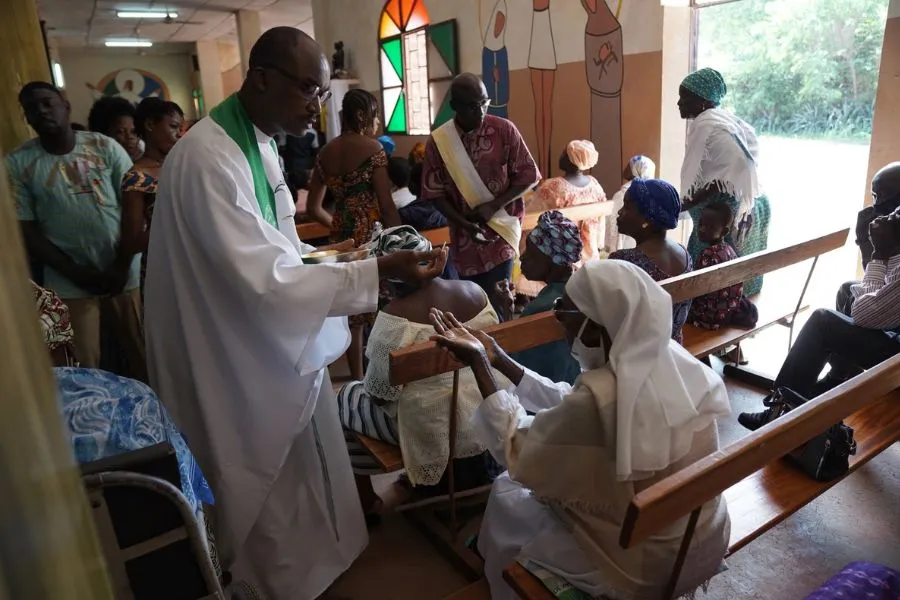Fada N’Gourma, 02 September, 2023 / 8:41 pm (ACI Africa).
Christians in Burkina Faso who had abandoned the Church are coming back much stronger, a Catholic Priest serving in the West African nation that is experiencing a high level of persecution has said.
Fr. Pierre Rouamba, the Prior General of the Missionary Brothers of the Countryside (FMC) finds it remarkable that Christians who had left the Church when Burkina Faso was still peaceful are coming back at the most difficult time to be a follower of Christ in the country.
“It is truly striking to note that Christians who had to some extent abandoned religious practice before the crisis, are returning to the faith at a time when the terrorists are doing what they can to extinguish Christianity. While the terrorists prevent Christians from gathering in churches, families get together in their homes to rekindle the flame of faith through catechism classes and joint celebrations when there are no priests,” Fr. Rouamba tells Catholic pontifical and charity foundation, Aid to the Church in Need (ACN) International.
In the Tuesday, August 29 ACN report, the Burkinabe Catholic Priest says that it is precisely because these Christians are directly persecuted that they deepen their bond with the person of Jesus Christ.
“The blood of the martyrs is the seed of Christians, in a particular and current way here in Burkina Faso,” he says, adding that in Kompienga, a province in the Eastern region of Burkina Faso, which he describes as being “under fire from terrorists”, requests for baptism are pouring in, and catechism classes are continuing.








